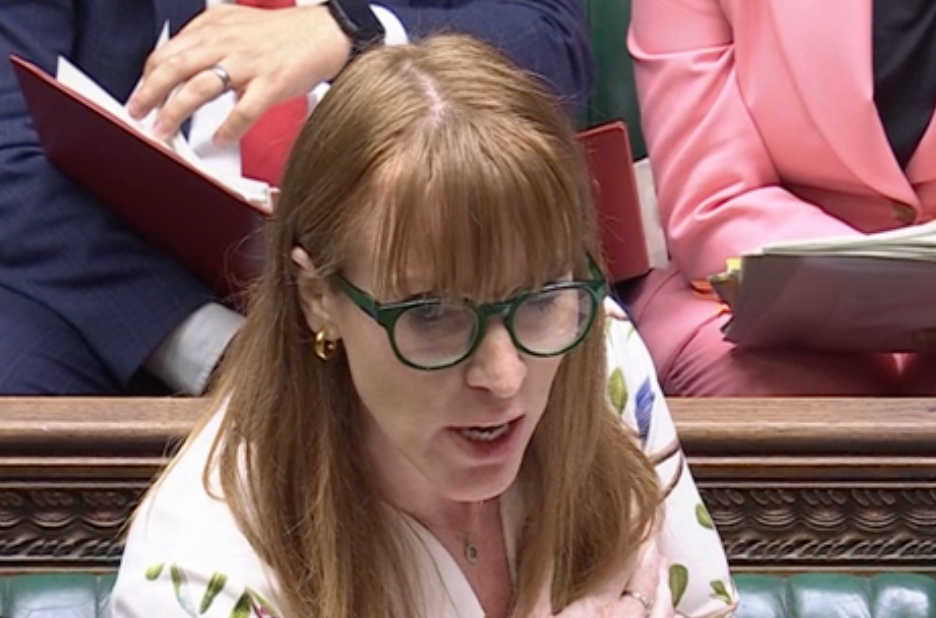Starmer warns Labour welfare rebels to ‘read the room’ as Rayner finally backs the PM

A frustrated Sir Keir Starmer has told Labour MPs attacking his welfare reforms to “read the room” as he hit back against rebels lining up to vote down the changes next week.
It came as deputy prime minister Angela Rayner finally broke cover to publicly back Sir Keir’s controversial benefit cuts amid a growing rebellion of Labour MPs that threatens to topple the bill.
With 122 Labour backbenchers now signed up to support an amendment on Tuesday that would kill the bill, the prime minister went on the attack. Warnings of potential deselections and the possibility of the government’s collapse had previously failed.

Speaking at the Nato summit in The Hague, Sir Keir said: “So many people predicted before the election that we … hadn’t got the politics right. We wouldn’t win an election after 2019 because we lost so badly. That was the constant charge [put to] me at press conferences like this, and we got a landslide victory.
“Unquestionably, with reading the room and delivering the change the country needs, we’ve got a strong Labour government with huge authority to deliver on our manifesto commitment. So that’s the work that we did, over many years, to win the election. Now we start the work, over many years, to change the country.”
Meanwhile, Ms Rayner, filling in for Sir Keir at PMQs, insisted that the controversial reforms would help “millions trapped in a failing [welfare] system”.
She said Labour was still “the party of fairness” and that she was confident that the vote on the second reading of the welfare reform bill would go ahead on Tuesday next week, despite the growing number of Labour rebels preparing to back an amendment to kill the legislation.
Ms Rayner’s intervention came after several Labour MPs had privately commented that she had not been deployed as much as other cabinet ministers in the attempts to dissuade backbenchers from voting against the government.
Efforts to win over rebels had been led by health secretary Wes Streeting, chancellor of the Duchy of Lancaster Pat McFadden, business secretary Jonathan Reynolds, and work and pensions secretary Liz Kendall.

Meanwhile, earlier this year, a leaked memo from Ms Rayner revealed that she had pushed for eight wealth taxes to be levied on corporations and the richest individuals in place of cuts. She also fought tooth and nail with the Treasury over plans for cuts to her Ministry of Housing, Communities and Local Government during the spending review.
The deputy prime minister’s job was made easier at PMQs by the fact that Labour MPs avoided asking about welfare reform. They included Debbie Abrahams, who, as chair of the work and pensions select committee, is one of those leading the rebellion.
But Tories and Liberal Democrats pounced on the issue – and, with some whips claiming it could amount to a confidence issue for the government, suggested that it might be a pretext for Ms Rayner to replace the prime minister.
Shadow chancellor Sir Mel Stride said: “It is great to see [Ms Rayner] standing in temporarily for the prime minister for the second week running, although I know there are many sitting behind her who wish this was a permanent arrangement.
“Indeed, you will find many of their names amongst the 122 who have signed up to oppose the government’s welfare bill. They say that the bill is dangerously rushed and ill-thought-through. So can [Ms Rayner] explain why she thinks that she is right, and 122 of her own colleagues are wrong?”
Ms Rayner responded: “We won’t walk away and stand by and abandon millions of people trapped in the failing system left behind by [Sir Mel] and his colleagues.”
Later, when the Tory MP pressed her on whether the vote would go ahead on Tuesday, she replied: “I don’t know if he listened to what I said, because he was reading off the script, but what I can tell him – and I don’t need a script – [is that] we will go ahead on Tuesday.”
The Tories have offered to support the welfare reforms if Labour meets three conditions, including cutting benefits further, not increasing taxes, and getting people back into work.
Ms Rayner accused them of not looking at the detail of the legislation, which she said was aimed at getting people off benefits and back into work, and accused them of creating the failed system that Labour needs to reform.
When Lib Dem deputy leader Daisy Cooper took up the issue, Ms Rayner’s response appeared to be aimed at the Labour back benches. “Labour is the party of fairness,” she hit back.
:max_bytes(150000):strip_icc()/tahj-mowry-smart-guy-030625-edcafd1ee7394e31bc67d890dc484981.jpg?w=390&resize=390,220&ssl=1)


:max_bytes(150000):strip_icc()/Cedrek-McFadden-Survivor-040825-bdc9cad0cdb24424b4ca383dcb1ce764.jpg?w=390&resize=390,220&ssl=1)
:max_bytes(150000):strip_icc()/kate-hudson-how-to-lose-a-guy-in-10-days-021925-2afa6c4558a34bd1bb6013f20608717f.jpg?w=390&resize=390,220&ssl=1)